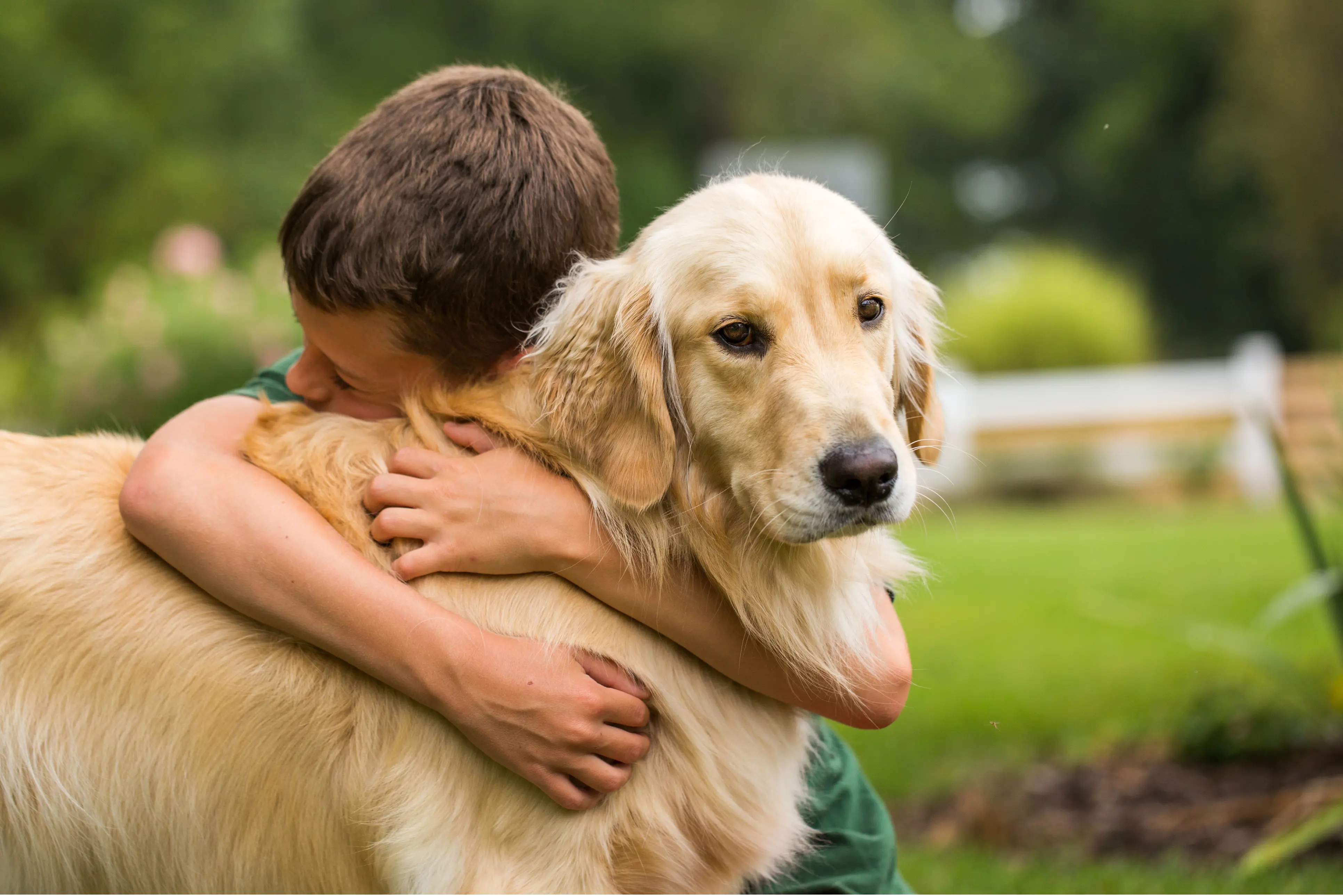Can I Foster if I Own a Pet? The Positive Benefits
Date published
24 April 2023

If you’re considering fostering, you may be wondering, ‘can I foster if I have a pet’? This is a great question, and the answer is usually yes! In fact, a pet can be really positive for a foster child or young person, depending upon the circumstances.
A foster child or young person may have been removed from their biological family due to abuse, neglect, or other challenging circumstances. As a result, they may struggle with feelings of anxiety, depression, and loneliness. One way to help foster children cope with these challenges can be through pet ownership.
In this blog, we'll explore some of the positive effects a pet can have on a foster child or young person...
Having a Pet in the Home Provides Comfort
Pets are great companions and can be a fantastic source of comfort. They don't judge or criticize, and they are always happy to see their owners. For a foster child who may have experienced rejection or abandonment, having a pet can provide a sense of security and comfort. The pet becomes a constant presence in the child's life, providing a stable and reliable source of love and affection.
Having a Pet in the Home Can Reduce Stress and Anxiety
Foster children may experience high levels of stress and anxiety due to the instability of their living situations. A pet can help to reduce these feelings by providing a calming presence. Studies have shown that petting a dog or cat can lower blood pressure and reduce stress hormones like cortisol.
University of Missouri-Columbia scientists discovered that human blood pressure dropped by approximately 10% around 15 to 30 minutes after petting a dog.* For a foster child or young person, having a pet to snuggle with can be a soothing and comforting experience.
Having a Pet in the Home Can Increase Self-Esteem
Foster children may struggle with feelings of low self-esteem and self-worth. Having a pet can help to boost their confidence and self-esteem. Caring for a pet and seeing the positive results of that care can give a child a sense of accomplishment and pride. In addition, pets provide unconditional love and acceptance, which can help a child feel more positive about themselves.
Having a Pet in the Home Can Teach a Child or Young Person Responsibility
Caring for a pet requires responsibility and commitment. For a foster child who may have experienced a lack of structure and routine in their life, having a pet can provide a sense of purpose and responsibility. Children who care for pets learn about the importance of regular feeding and exercise schedules, grooming, and hygiene. These skills can translate into other areas of their lives and help them become more responsible and self-sufficient.
Having a Pet in the Home Provides a Child or Young Person With Companionship
Foster children and young people may experience feelings of loneliness and isolation. Having a pet such as a cat or dog can provide a constant companion and a source of comfort. Pets can help to reduce feelings of loneliness and provide a sense of belonging. Additionally, pets can be a great way to make friends and connect with others who share similar interests.
Pets can have a significant positive impact on the lives of foster children and young people. If you are considering fostering a child and already own a pet, there can certainly be benefits to this. The suitability of any pet will be assessed in each individual application.
Read what our foster carers said about their experience of fostering with pets:
“The animals are therapeutic, I've found at times when child or young person have their struggles the pets can help them re-connect with the home, the pets love unconditionally and at time that's so important to children. Our chickens show the children the benefits of care and how important care is to get the fresh eggs daily and what we put in, we get back. Pets teach children life skills like care and love and that is so important to develop life skills for anyone's young future.”
“In our experience, pets can be a wonderful addition to a foster home. In fact, my family has a pet cat and a pet parrot who have been incredibly helpful in settling in new foster children. These animals are very intuitive and seem to understand emotions, which can be comforting for children who may be feeling anxious or overwhelmed. They also bond very well with the children and provide opportunities for playtime and cuddles, which can help build trust and create a sense of security.”
Our friendly team are on hand to answer any questions you may have around fostering and the process involved.
To make a start on your application or simply find out more, call us on 01706 558910 or contact us online and we’ll be in touch.
*https://www.countryliving.com/uk/wellbeing/a23503266/petting-dog-lowers-blood-pressure/
Fostering insights
24 April 2023